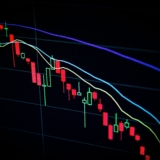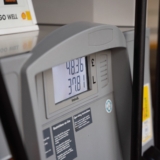Americans Struggle with Mounting Car Loan Delinquencies
The ripples of economic turbulence are making their way into American households as a surge in delinquent car payments signals trouble for the country’s already strained financial landscape. Amidst skyrocketing car prices and relentless inflation, the burden on household budgets has only intensified, casting a shadow of doubt over the resilience of the US economy.
According to a recent Fitch Ratings report acquired by FOX Business, the percentage of auto borrowers lagging behind on their payments by at least 60 days climbed to a staggering 6.11% in September. This distressing figure marks the highest default level in almost thirty years, underscoring the severity of the current economic challenges.
While defaults haven’t yet caught up to the spiraling delinquencies, a separate report from Cox Automotive hints at a worrying trend. Despite a 9.8% decrease in defaults for the month of September, a year-on-year comparison reveals a daunting 31.7% surge. With 1.5 million vehicles anticipated to face repossession by the year-end, the threat of exacerbating financial instability looms large, casting a pall over the road ahead.
The perfect storm of steep car prices and exorbitant borrowing costs has amplified the financial strain on consumers. The tumultuous backdrop of the ongoing United Autoworkers strike has only added fuel to the fire, exerting pressure that could potentially drive prices even higher. As the average cost of a new car hovers around the $48,000 mark, the recent escalation in interest rates to 7.4% for new auto loans and 11.4% for used auto loans has further intensified the ordeal.
The impacts are tangible and felt deeply by Americans, with monthly payments crossing the dreaded $1,000 threshold for a significant portion of consumers. Data from Edmunds suggests that a record-breaking 17.1% of individuals were shelling out over $1,000 each month for their vehicles in the second quarter of 2023, indicating the severe strain on household finances.
While the Federal Reserve has paused rate hikes momentarily, their indication of a potential extended peak for interest rates only adds to the gloomy outlook. With the possibility of further defaults and repossessions on the horizon, the potential repercussions for the already fragile auto industry and the broader economy cannot be overstated.
The key now lies in implementing prudent policies and measures that can mitigate the risks faced by struggling American households. Only through thoughtful and proactive economic strategies can the nation hope to navigate these turbulent times and steer towards a more stable and sustainable financial future.





